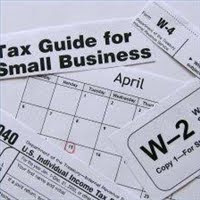
Often one of the most asked questions when preparing tax documents. There are certain employee expenses and many other expenses that can be classified as a miscellaneous deduction taken on Schedule A of form 1040. Of course these deductions are subject to the 2% limit. What does this limit mean? You can deduct the amount left after you subtract out 2% of your adjusted gross income from the total.
What are some of these expenses?
• Employment related educational expenses
• Professional association dues
• Business association dues
• Costs associated with looking for a new job
• Professional books and magazines
• Any unreimbursed employee travel, meals and entertainment
• Home office expenses
• Safe deposit rental to store investment-related items
• Legal fees to collect taxable income such as alimony
• Tax preparation fees
Items which might be deductable but NOT subject to the 2% floor include:
• Moving expenses to a new job location
• Gambling losses to the extent of gambling winnings
• Jury duty turned over to your employer
Items that cannot be deducted include:
• Broker's commissions that you paid in connection with your IRA or other investment property.
• Burial or funeral expenses, including the cost of a cemetery lot.
• Campaign expenses.
• Club dues.
• Commuting expenses.
• Fees and licenses, such as car licenses, marriage licenses, and dog tags.
• Fines and penalties, such as parking tickets.
• Health spa expenses.
• Home repairs, insurance, and rent.
• Home security system.
• Investment-related seminars
• Losses from the sale of your home, furniture, personal car, etc.
• Lost or misplaced cash or property.
• Lunches with co-workers.
• Meals while working late.
• Personal legal expenses
• Personal, living, or family expenses.
• Political contributions.
Hope this makes it a little easier when preparing your documents for tax filing. Have additional questions, please feel free to contact us.



